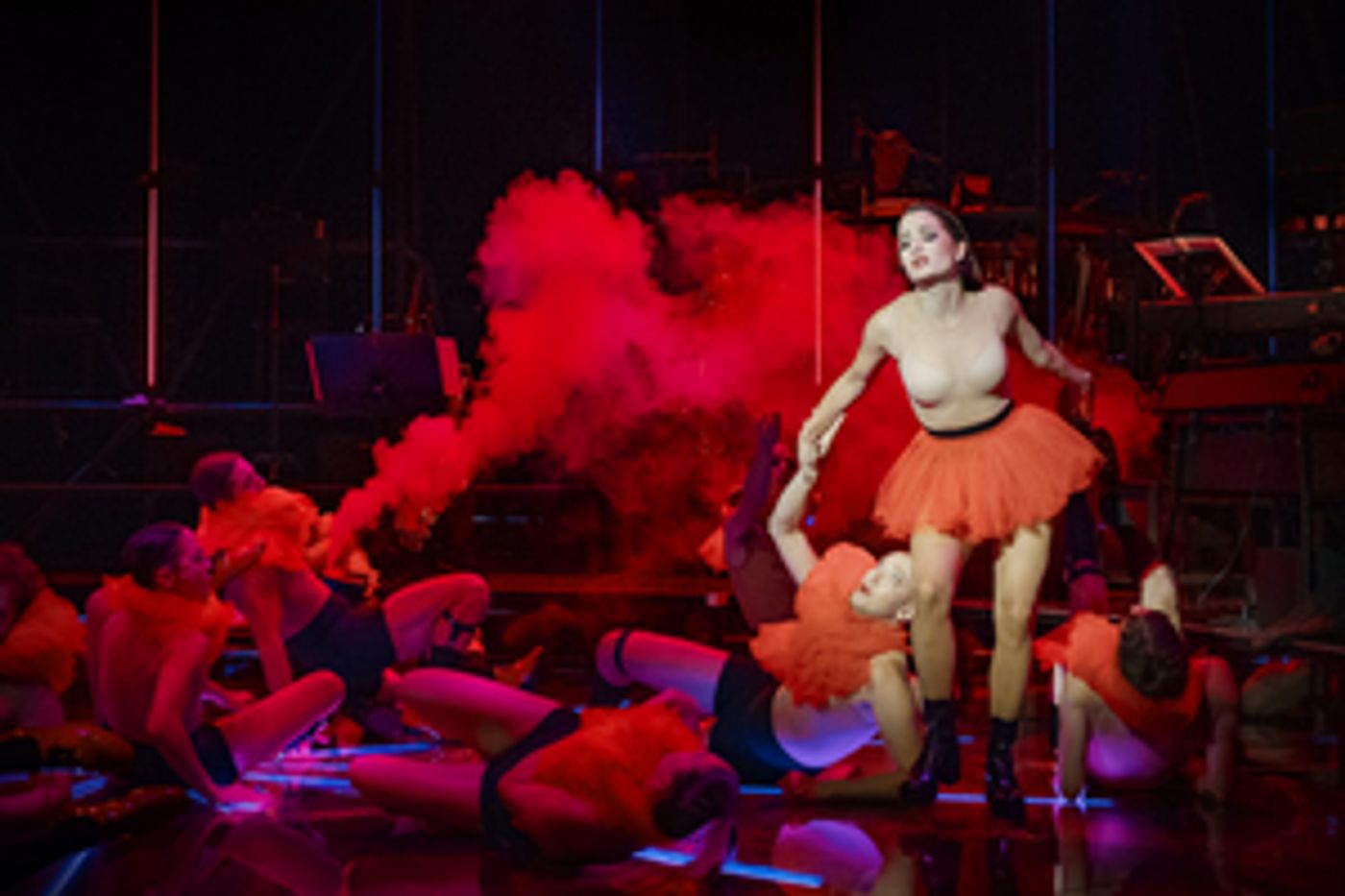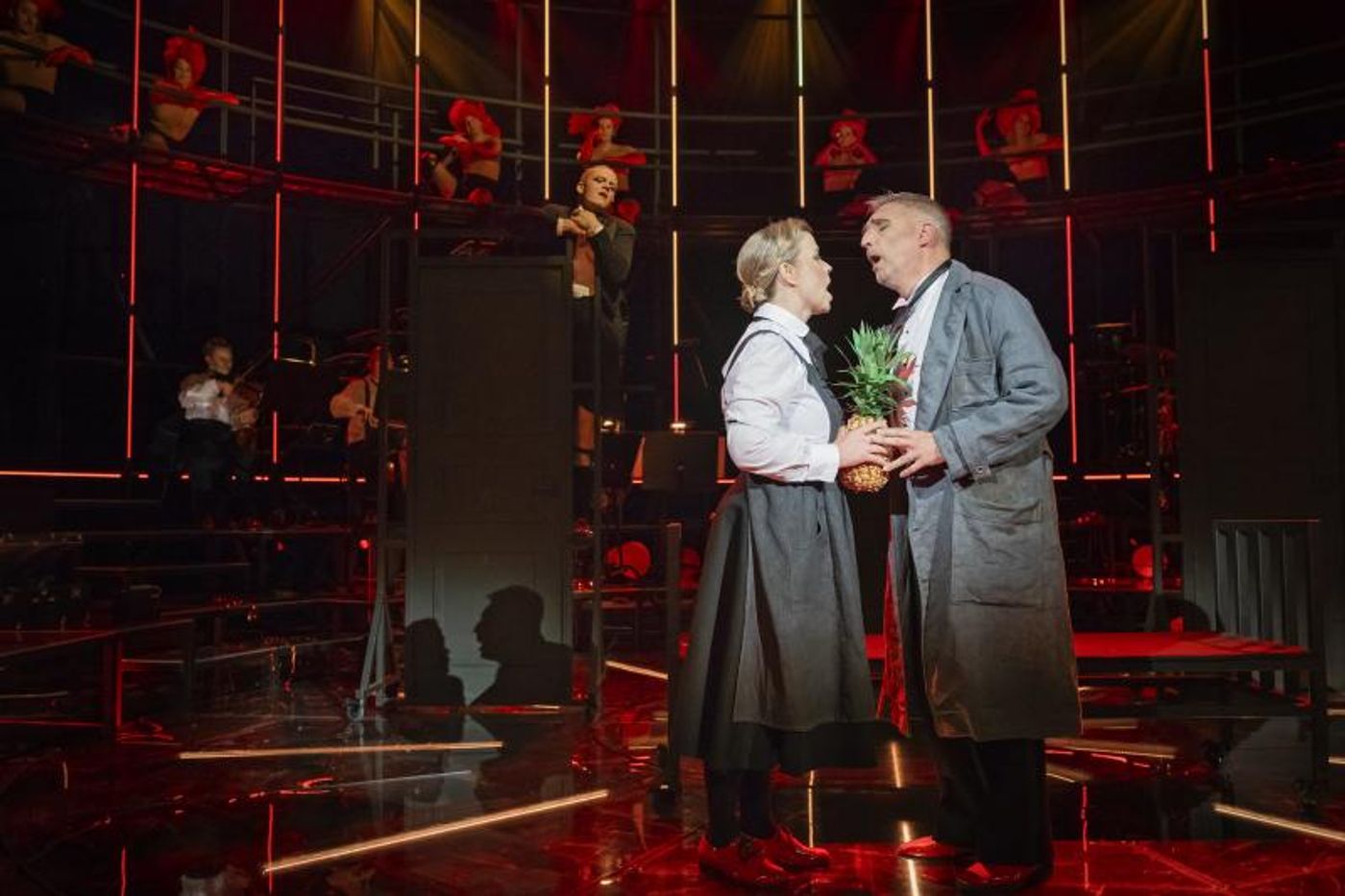BWW Finland review: CABARET takes you from dances to hungover mornings of Berlin at Turku City Theatre
Cabaret is a fresh interpretation of the old classic with distincitve Höglund-aesthetic. The music leaves to play in your head and lights to blink in your eyes.

Spoilers.
I went to see Cabaret the classic musical from the 1939 in Turku City Theatre. I had waited this for a long while for I adore Höglund's direction aesthetic since Hansel and Gretel.
The same aesthetic I saw in Cabaret in Turku: the characters move sharply and the turns are somewhat round. Light in the audience brings intimacy from the start and invites us to look further into the stage.
Höglund mentions on the website how he is most thoughtful about "closing one's eyes in the midst of change" what comes to the themes in the play. Unfortunately I wasn't able to see it directed on stage so much, but however more than that I perceived the theme of not validating one's choice: the characters kept stumbling about the doors, in and out, through and around. They made the choise to go out but came in or left to be around the door. It was a very cool symbol. And yes, even the program has a door in the front page to its content. Great!
Let's get back to the beginning: Höglund knows how to direct sharply. I believe and saw how every character in the beginning had their own "direction" or "task" in terms of being on stage. They even had a different take on the clapping: someone was overjoied, someone was bored, but everyone had the same rhythm!
The concept of time is strong in this. The stomping in the beginnings. The suitcases are placed on the go-around stage as if numbers of the clock as do many other things. Time goes on towards the doom but the partying goes on in Cabaret.
Jussi Vahvaselkä has directed the music well with its different varions of tones and volumes that support the emotional journey and meaning of the song.
Höglunds choreographs are excellent, mostly enjoyable at the "Threesome" and also when people que up for money. In the beginning's train scene it should have needed a little more polishing cause ensemble's necks moved in a different variation to the rhythm of the train, which broke the saucy unity.
The ensamble has great group dynamics which is quite rare in such a big production. Their overall focus is enjoyable to watch.
My top three personal favorite performances were Miiko Toiviainen (obviously) as the narrator and leading character. Little overdone facial expressions were just on point and he naturally slipped into the role of additional characters. Okay the taxidriver or whoever big bellied fellow it was was a little awkward. I also enjoyed very much of the murkiness of the scene where everything else was black but Miiko sat in pink in the middle of the stage. The slow, perfect pace of the scene was well needed and gave us time to breathe and ponder on the happenings.
Riitta Salminen as Fr. Schneider was my idol. Her first solo song totally mesmerized me. She is charisma goals!
Big thanks to Stefan Karlsson who had clearly done his accent homework (especially heard in "I'm really fond of you) and had overall great focus and bravery to take on the role.

receiving a pineapple surely knew how valuables pineapples were in the 19th century (1800)
Höglund knows how to use imagination: we transition from the Hotel to the KitKat club with just some sharp moves and light tricks (by Jarmo Esko). Antisemitistic vandalism is delivered by just dropping the brick on the floor with an intensive staring - the rest is all about the co-actor's reaction. Also the hungover morning is created with a sweet detail of "smoking a cigarette", which is actually a flute to rhythm the scene in one musician hand who has just woken up from the floor like the rest.
I do have to give a little criticism on the Finnish translations of the lyrics by Esko Elstelä. The English ones were pleasing but the Finnish ones I perceived to have somewhat old school "syllable slavery". It had to match to the original rhythm of the lyrics and thus some of the beautiful themes and atmospheres in the original songs weren't fully carried, I think.
What comes to the overall script by Joe Masteroff, well... It's old. It lacks satisfying, adventurous problem solving after the climax of the preintermission moment. There could have been thousands of more ways to carry on the story than just, literally, leaving the scene: leaving Berlin, leaving the relationship, etc., etc.
I also somewhat felt that after the Pineapple song came a cornish turning out of scenes that reminded me of bad, quickly written fanfiction. It was directed in somewhat kitchy way as well: "We're the most boring people" line from Sally was delivered with witness and wide grin at the audience.
Even though there are some problems with the script I think Höglund did his very best and gave his own spice to the show.
Of course the themes sure made audience members think especially when the monkey scene (great physical doing, Mikko Kauppila) was seemingly contrasted to gay marriage, but then the monkey splurred out: "At least I'm not jewish". Times change.
All in all Cabaret is a fresh interpretation of the old classic with distincitve Höglund-aesthetic. The music leaves to play in your head and lights to blink in your eyes - though you'd close them.
Article: Rosanna Liuski
Photos: Otto-Ville Väätäinen
Videos


